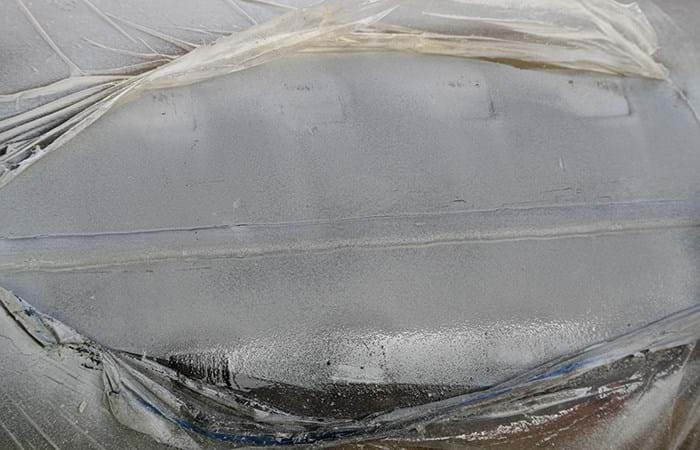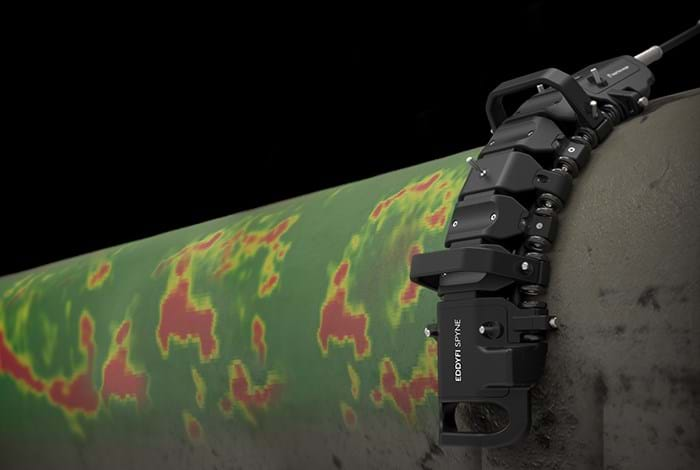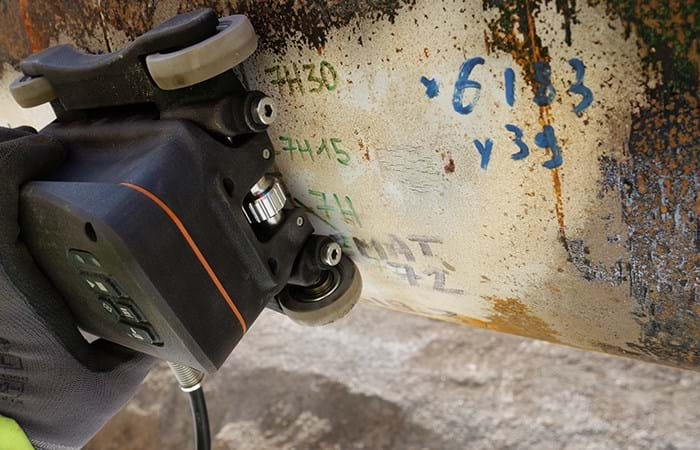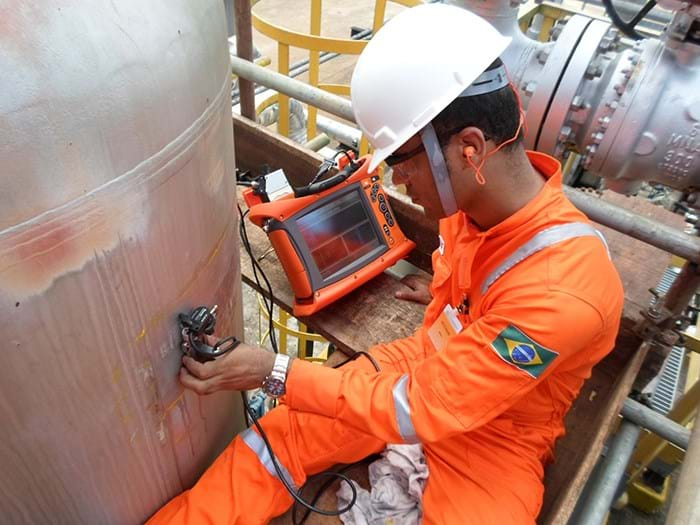Stress corrosion cracking (SCC) is the result of stress and a corrosive environment on metal, and therefore is common on external carbon steel pipeline surfaces in contact with corrosive soil. Pipelines are susceptible to bursting from SCC without any prior wall thinning, highlighting the importance of early detection.
Details
Stress corrosion cracking (SCC) is the result of stress and a corrosive environment on metal, and therefore is common on external carbon steel pipeline surfaces in contact with corrosive soil. Pipelines are susceptible to bursting from SCC without any prior wall thinning, highlighting the importance of early detection. Stress corrosion cracking appears in both gas and liquid pipelines, but the latter is more common, with potentially catastrophic results. Because of the nature of SCC colonies, surface-breaking cracks in the form of shallow and extremely fine branches are challenging to detect and size with traditional non-destructive testing (NDT) techniques.

Eddyfi Spyne™, an adaptable surface eddy current array (ECA) screening tool, is specifically engineered to maximize productivity for the detection of SCC in various critical components including high-pressure gas pipes, vessels, tanks, pipelines and more. It can accommodate a range of flexible probes designed to suit ferritic and non-ferritic alloys and is configurable for inspecting external diameters from 150 millimeters (6 inches) to flat surfaces. The Spyne helps ensure pipeline integrity during stress-corrosion cracking direct assessment (SCCDA). Although magnetic-particle inspection (MPI) and liquid-penetrant inspection (LPI) are regularly used to effectively to detect SCC, these methods are often impractical and come with known drawbacks: surface preparation, manual length sizing, high operator-dependence, and lack of digital data. Spyne compares favorably against MPI and LPI for SCC detection, thanks to a higher Probability of Detection (PoD).

Once SCC is detected, the high-resolution Eddyfi Sharck™ probe can be used to accurately size the depth. The probe uses tangential eddy current array (TECA™) technology and has a flexible inspection interface offering a wide coverage compatible with pipes 254 to 1,220 millimeters (10 to 28 inches) in diameter. Able to tolerate coatings up to 2 millimeters (0.08 inches) thick, the Sharck probe removes the need for pre- and post-inspection surface preparation, while offering depth sizing on shallow SCC clusters, something known to be very difficult.

M2M Gekko® is a phased array flaw detector that has been qualified by the Electric Power Research Institute (ERPI) for the examination of austenitic and ferritic piping welds according to procedure EPRI-PIPE-MPA-1, Rev.2, the ASME Boiler & Pressure Vessel Code, Section XI, Appendix VIII. Gekko is a proven solution that accurately detects and measures length of discontinuities with the outer diameter surface of piping systems susceptible of SCC. Both the Gekko and M2M Mantis™ offer conventional ultrasonic testing (UT), advanced PAUT, TOFD and TFM through the streamlined software user interface, Capture™. TFM offers improved spatial resolution and dead zone sensitivity to probe positioning so that stress corrosion cracking is more easily detectable.
Eddyfi Technologies offers reliable NDT solutions for stress corrosion cracking inspection applications, ensuring the integrity of pipelines and other critical assets across the oil and gas, offshore, chemical, and a range of other manufacturing industries.
